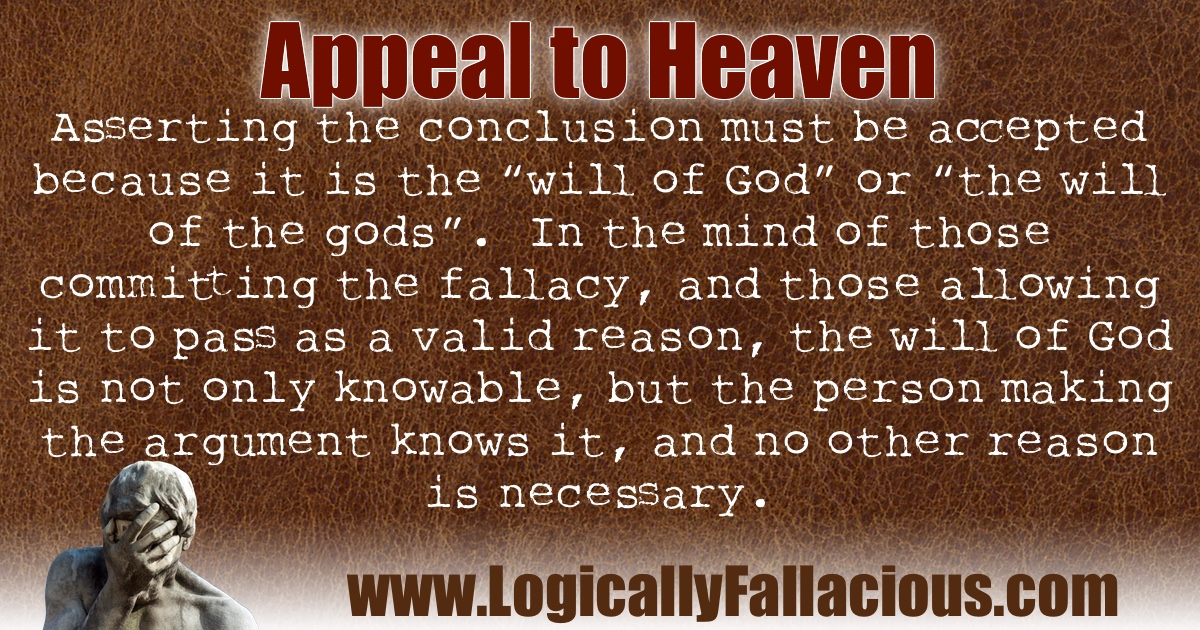deus vult
(also known as: gott mit uns, manifest destiny, special covenant)
Description: Asserting the conclusion must be accepted because it is the “will of God” or “the will of the gods”. In the mind of those committing the fallacy, and those allowing it to pass as a valid reason, the will of God is not only knowable, but the person making the argument knows it, and no other reason is necessary.
Logical Form:
God wants us to X.
Therefore, we should X.
Example #1:
Judge: So why did you chop those people into little pieces and put the pieces in a blender?
Crazy Larry: Because God told me to do it.
Judge: Good enough for me. Next case!
Explanation: We should all be thankful that our legal system does not work this way, but human thinking does. Every day, people do things or don’t do things according to what they believe is the will of their god. Fortunately, most of the time, this does not include a blender.
Example #2:
Ian: Why is the story of Abraham and Isaac regarded as such a “beautiful” Christian story? The guy was about to burn his son alive as a human sacrifice!
Wallace: Because it was the will of God that Abraham was following, no matter how difficult it was for him. Isn’t that beautiful?
Ian: I guess as long as it was the will of God, being asked to burn children alive is a beautiful thing.
Explanation: One needs to ask, how do you know it is the will of God? Satan is said to be the great deceiver -- he would only be great if those being deceived couldn’t tell the difference between God and Satan. In reality, appealing to Heaven, or God, is an abandonment of logic and reason, and as we have seen, potentially extremely dangerous.
Exception: When the supposed, "will of God", is in line with what someone would already do or believe based on reason, no fallacy is committed.
I choose not to kill other people because I would not want them choosing to kill me, plus, I believe that God wouldn’t like it if I did.
Fun Fact: Sometimes the only difference between faithfulness and insanity is adherence to the law.

This a logical fallacy frequently used on the Internet. No academic sources could be found.